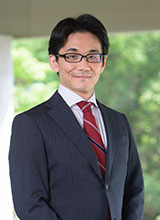
The Intrinsic Value of Economics in the Age of AI

The Keio University Graduate School of Economics will celebrate its 120th anniversary in 2026. This is its 136th anniversary from the creation of the department of economics at Keio Gijuku in 1890. Over all these years, our university has been a leader in economics education in Japan. Yukichi Fukuzawa, the founder of Keio, wrote that the mission of Keio University was to “nurture leaders in society,” and this goal has come to fruition at the Graduate School of Economics as many of its alumni have gone on to work as pioneers in academia, government, and industry.
In recent years, however, we have seen the rapid improvement and utilization of artificial intelligence technology and AI applications that has prompted much research into the question, “What are the things that only humans can do?” These studies have raised concern that AI may not only replace humans in relatively simple and repetitive tasks, but also in jobs that require a certain level of decision-making. AI now appears to be replacing even advanced and high-paying jobs like programmers and data scientists, with unemployment rates on the rise for those with degrees in computer science, particularly in the United States. This has obvious global implications about what role research and educational institutions will play in the future.
However, I believe that it is precisely in times like these when studying economics or conducting research on economics becomes invaluable.
Economics is a rare academic discipline that encompasses both the empirical study of how scarce resources such as labor, capital, and information are allocated, and the normative inquiry into how those resources ought to be distributed. At the same time, the behavior of real people and companies who create or use these resources is highly complex. They act in their own self-interest, often anticipating the actions of others and responding to changing circumstances. In reality, people and companies have been shown to change their behavior in response to events such as the Lehman Shock and, more recently, the financial and fiscal policy changes around the world during the COVID-19 pandemic. There are countless examples where relying solely on old data leads to failed predictions of the future.
AI as it exists now is, by definition, reliant on old data and uses those patterns to output its responses. In contrast, it is extremely difficult to simplify complex phenomena into models that focus on their essential elements, to infer true causal relationships from data, and to reconcile the interests of multiple stakeholders from a normative perspective. These are the highly sought-after skills made possible by studying advanced economics and, as an academic field of study, they represent “the things that only humans can do,” having a significant impact on other social sciences, policy making, and business management.
Even before the war, Keio University or, “Mita no Rizai,” has been synonymous with economics. Reflecting this legacy, our graduate school today boasts faculty whose research and teaching abilities rank among the best in Japan. Moreover, our staff specialize in a wide range of fields that go beyond what has been traditionally considered economics. We offer a fully English curriculum from admission through to degree completion, a CEMS Master in International Management (MIM) program, a double degree program with Brandeis University, and a unique exchange program exclusive to our Graduate School of Economics. These opportunities open doors worldwide for motivated students.
The faculty at the Graduate School of Economics are dedicated to providing a meaningful and intellectually stimulating education. Our goal is to support students who aspire to become researchers in economics, as well as those aiming to lead in society through roles in the private sector, government, or NPOs. We strive to offer training and skills that cannot be replaced by AI and push ourselves to ensure the quality and impact of our teaching and research.
Dean, Professor Takahiro Hoshino




